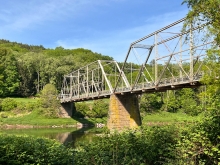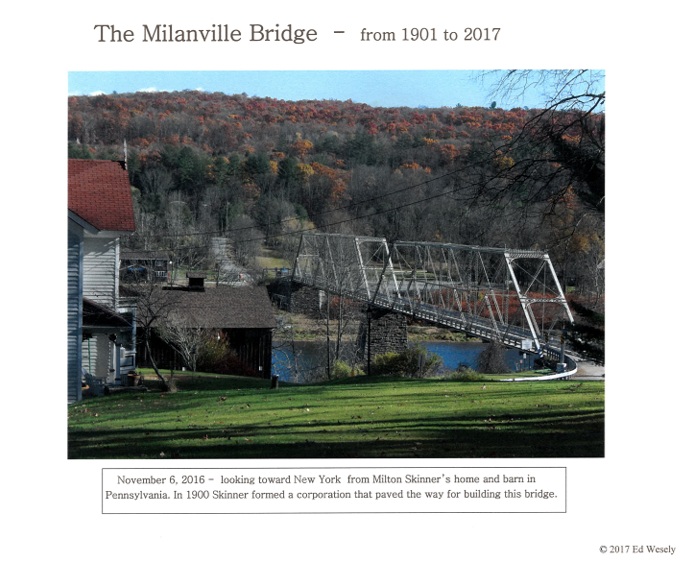During the period reflected in these newsletters, Innisfree operated as an affiliate of American Youth Hostels. My parents were the hosts and ultimately the owners. During the 23 years before the 13.7-acre River Road property was sold by Ann Rue (1996) to its current owner -- a professional artist and writer -- thousands passed through Innisfree's buildings and land, creating, recreating, working, learning, worshiping, and living. To the members of the more community based groups than can be named in this small space, all of whom took and left memories at Innisfree, as well perhaps as others, these pages might be of interest.
The premises known as Innisfree was purchased in 1970 from Oscar Ropke and Vivian Thomas Ropke whose family had run it for two generations as Hillside Acres or Hillside Farm. The place was engineered and constructed by the labor of Vivian's father, Anthony J. Thomas, and her late brother, Alfred. The Thomas family raised chickens in the outbuildings and took visitors into their home -- a practice Vivian and Oscar Ropke continued until they retired and sold the property to a group of teachers from Montclair, New Jersey who wanted to run an educational program for teenagers and young adults. The property in 1970 included a large dormitory building that was demolished after a fatal fire on August 25, 2002, as well as the large brown structure we called the main house facing River Road (where meals were served to up to 50 campers or residents at a time); a recreation hall with a well equipped carpentry shop in the basement and working forge in the garage; a small cottage behind the dormitory; a garage/chicken coop building which was leased briefly in the early 1970s to Hawkey Candle Co.
During the early seventies and eighties, Innisfree was licensed as a summer camp and as a public eating and drinking place, but it was not a typical children's camp. The vision that moved Innisfree's organizers was the idea of forming an intentional community focused on community self-government by consensus and on mindful practice of personal freedom. The program was said to be modeled after Summerhill by A.S. Neill [link]. Click here for my 1997 perspective of A History of Innisfree in Milanville, written shortly after the property was sold to its present owner. I have been asked to speak this summer (2024) on the history of Innisfree at a local historical society. When details are known, they will be posted.


